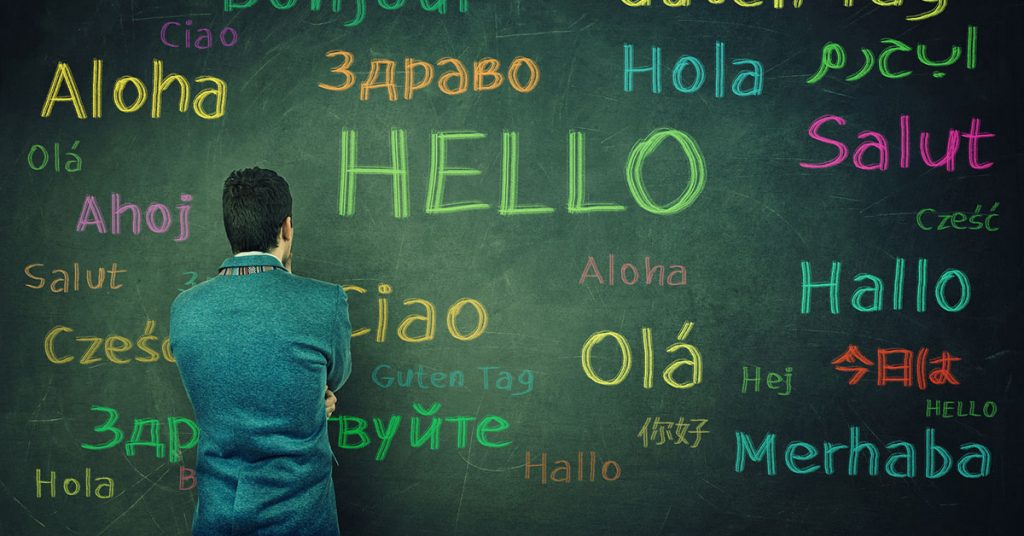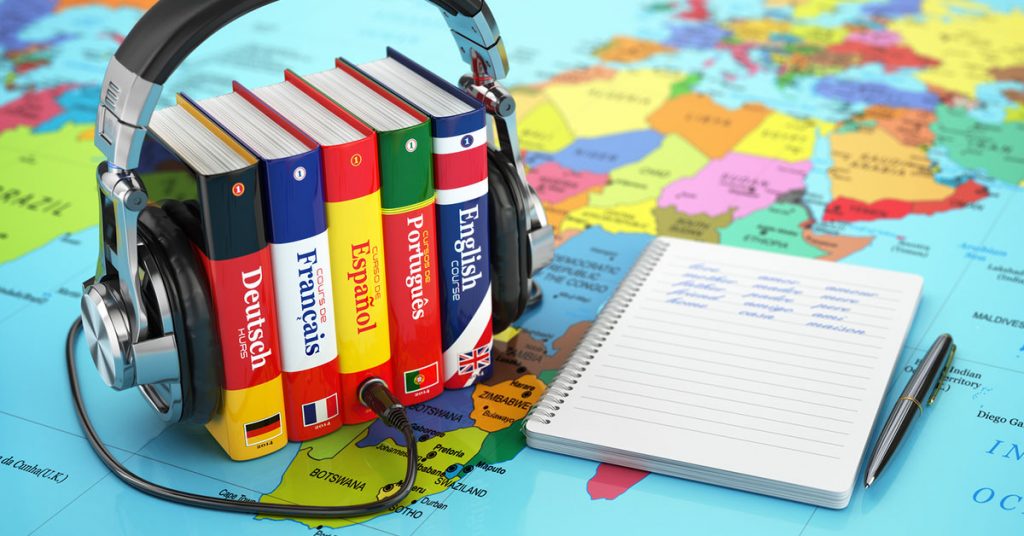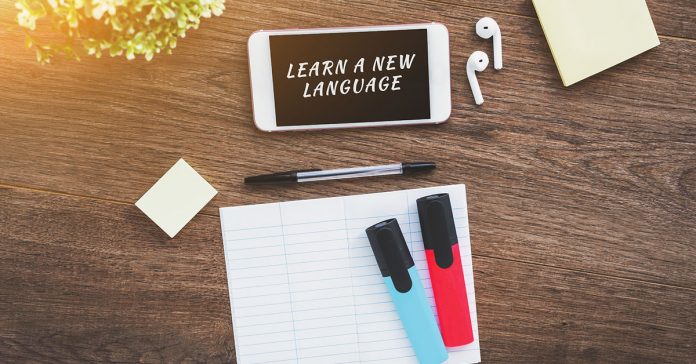I’m learning Portuguese at the moment, and sometimes I really struggle to remember my vocabulary. Not every word, but quite a few just won’t stick. This got me thinking. How many words do you need to learn before you can call yourself fluent in a particular foreign language?
Most linguists would say that you need to master around 10,000 words of vocabulary to reach a near-native level of fluency in your chosen language.
However, there isn’t a magic amount of numbers you can learn before a language unlocks all of its divine mysteries to you. There are ways that you can think about the total amount of words which add up to the fluency.
For example, there are different levels of vocabulary that correspond with various levels of fluency. There are also different types of words beginners need to learn before other types of words. If they learn these words in the wrong order, they might be further away from fluency than they would have liked.
And, yes, it’s possible to count the number of words needed to become fluent in a language. But before we start doing that, let’s discuss what we should be counting.
How Many Words Should I Learn In My Target Language?
Whenever someone tells you they’re learning a new language, you automatically picture walls covered with postcards from another country. Perhaps there are sticky notes with foreign words on them lying on the table. Web links to tips on how to learn a language.
Words are essentially what language is made of. We’ll do whatever it takes to remember as many as possible. Heck, we’ll even stick notes to everyday objects if we have to!

Naturally, it’s impossible to learn any language unless you learn the words. But is it necessary to amass a MASSIVE vocabulary? Should that really be your goal here? For example, person A might learn 1,000 words, while person B might learn 5,000 words. But if person B simply learns variations of those first 1,000 words, they won’t have that much of an advantage. Especially if they don’t even know how to use the words.
If you don’t think there’s a huge difference between one thousand and five thousand words, let’s take a look at what a word actually is. This will be key to deciding how many words you need to learn before you can call yourself fluent in a foreign language.
Organic Learning
Firstly, the average English native speaker has a vocabulary of some 10,000 words. That’s pretty impressive, but this is only according to one source. According to another source, the average English native speaker has a whopping 35,000 words at his or her disposal. Wow!
Why do two sources have such wildly different numbers? It’s probably because of the way they measured their results.
For example, some researchers prefer to count every single form of each word. For instance, consider an everyday verb like to run. Out of this verb come words like running, ran, run, runs and so on. Some researchers would list these as individual words, which is fair enough.
However, there are other researchers that only include word families (or headwords). In other words (sorry), they list the root word out of which all other words are derived, but they ignore the rest. For example, they would include house in their list but not houses. Meanwhile, they would add the verb to be but not its derivatives, which include be, was, is, and so on.
If you took the latter approach, understanding the verb to run means you can then master it, as well as its derivatives while improving your grammatical knowledge. For example, you would soon understand phrases like the dog runs.

We can call this style of learning organic learning. With this style, we learn the form of each word, and as we progress and learn more about the structure behind a language. We eventually get to the stage where we can generalise the word and apply it to a variety of situations.
Over time, you can make each word future tense, past tense, plural and so on.
Maybe now you’re beginning to see the gulf that exists between the two approaches. To continue, let’s consider what would happen if ran and run were counted as a single word. Where would we then draw the line between the verb to run when we apply it to the context of to manage in its noun form? How do we separate it from a quick run to the shop? How do we draw a line between each cluster of meanings? Suddenly it’s not to easy to work out how many words you need to learn. Who knows how long it would take to learn a language following these methods?
When you try to count words, make sure that – whatever you do – you’re at least consistent in your method.
How Do We Know What We Know?
To throw another spanner into the works, how do you define the words you know?
What happens when you sort-of-know a word you’ve just heard? What happens later when you can’t recall it and can’t use it in a conversation?
This is the line between what we call passive and active vocabulary.
Passive vocabulary are words that you can understand passively whenever you see or hear them. However, you can’t use them yourself. There’s like a mental block that prevents you from writing these words, speaking them – and even thinking them.
Active vocabulary, on the other hand, are words that you remember quickly. You’re also able to use these words with ease.
Most of the time, all new words will enter your passive vocabulary first. Over time, you’ll hear and see them more and more, you’ll gain a few contextual clues. You’ll develop a more mature understanding of how to use them in your active vocabulary.
Native speakers tend to have a huge passive vocabulary. In fact, it’s many, many times bigger than their active one. As beginners, sending words from your passive vocabulary to your active one is a fantastic way of expanding your knowledge.
How Many Words Do We Know, And How Many Should We Know?
For the purposes of this article, we’re going to include all word families and headwords in our word count. We’re not going to count the many different varieties of each word.
Once you narrow things down in this way, you’re able to make approximations.
Let’s take a look at each stage of fluency, and how many words you need to know in order to get to that stage:
Functional beginners

Functional beginners should have at least 250 – 500 words in their vocabularies. After about a week of learning their new language, they should have the basic tools needed to hold a conversation. They should be able to say hi, introduce themselves, ask how the other person is doing and so on.
Moreover, this amount of words should be enough to help you survive as a tourist in another country.
Conversational
If you’re looking to upgrade to the conversational level, your vocabularies should be packed with between one-thousand and three-thousand words. If you know a thousand words in any language, you’ll be able to have natural, flowing conversations.
Advanced
Advanced speakers can speak between 4,000 and 10,000 words. Once you start progressing beyond 3,000 words, you’re progressing past simple, everyday conversations about how your day was. You’re moving into a specialised vocabulary that allows you to – for example – discuss the latest news, politics and so on. You’ll be able to articulate and express your views and opinions without much hassle or worry.
Fluent
Fluent speakers should have an arsenal of at least 10,000 words in their vocabulary to fall back on. Once you know and understand this many words, you’re almost at the same level as a native speaker. That’s some accomplishment! Perhaps you want to check out 20 ways to get there faster?
You’ll be able to talk about most topics freely and without fear of making a mistake. You’ll be able to recognise so many words that, even when you do come across words you don’t understand, you’ll be able to grasp their meaning via the context.
Native
To be a native speaker, you need to possess between 10,000 and 30,000 words in your combined vocabularies. That’s a lot of words, and total word counts depend on the exact language. As mentioned earlier, some word counts suggest that you can be a native speaker if you understand 10,000 words. Others peg it at 60,000.
If you’re trying to master a foreign vocabulary, why not leave a comment below to let us know how you’re getting on?










